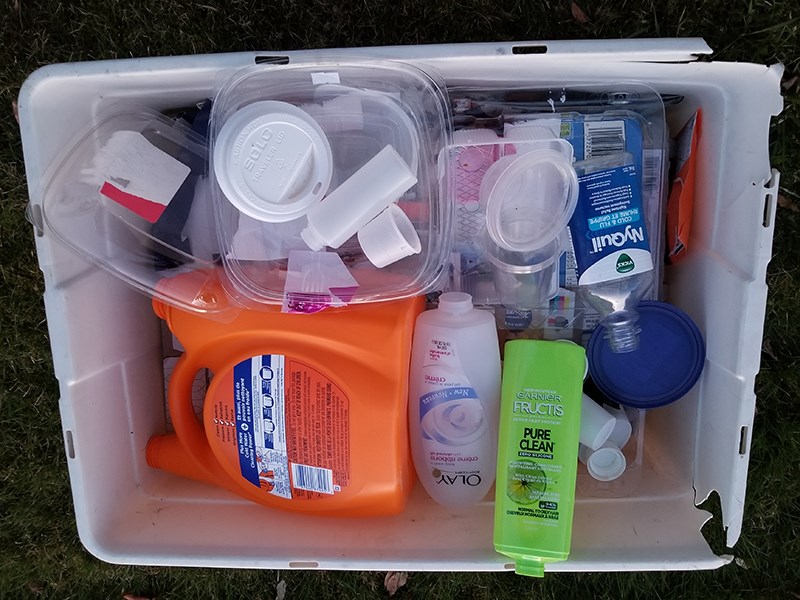Take a peek into your recycling bin to see how much plastic your household has gone through this week. In a world where everything from shampoo to cucumbers is packaged in it, there could be a mountain. Although the recycling bin is a better choice than the landfill, the question remains: how much?
It may surprise you to learn that only 11 per cent of plastic used by Canadians ends up actually being recycled. This is because there are many speed bumps that extend beyond the bin.
In BC we are fortunate to have access to 21 separate recycling programs that accept a wide variety of materials, including everything from car tires to small appliances. Each is funded by industry and consumers before purchase, and this encourages recycling at the end of life because there is generally no extra cost. So, why is our plastic recycling rate so low?
One reason is the incredible variety of plastics on the market. The little triangle with numbers one to seven indicating the plastic type is only the beginning of the story. It can be tough for even the expert sorter to distinguish one type from another because they look so similar. This is particularly the case for compostable plastics now flooding the market. Seemingly an effective solution to our plastic pollution, compostable plastics, among other challenges, contaminate the recycling bin, resulting in an inferior recycled plastic that will degrade earlier than intended.
Recently, our main recycler of plastics, China, closed its doors to the world’s dirty recycling bins. This has been a major wake-up call for Canada and other nations that had been exporting their contaminated recycling.
The silver lining in all this is that local processing plants are now beginning to be considered, and standards for cleanliness of our recycling have increased dramatically. In Powell River, we are champions at keeping our recycling clean, with less than three per cent contamination for our Recycle BC streams.
Certain plastics still don’t have any avenue to be recycled. Many household furnishings and electronics contain fire retardants that are too toxic to recycle. Beyond this are all the lightweight “crinkly” plastics that have recently been being accepted at depots in our region in a separate stream known as “Other Flexible Packaging.” Despite being collected, they are not currently being recycled, but are instead subjected to experimentation to see if there are methods to recycle them that exclude incineration.
Further challenges to plastic recycling include the fact that it is more often downcycled. Clear, food-grade plastic is the most valuable on the market. These days, however, a lot of plastic packaging is coloured with dyes and filled with non-edible products, both of which downgrade its value.
In the three Rs, reducing has always come before recycling. Now we have a bin load of reasons why for our plastic-choked planet.
Let’s Talk Trash is qathet Regional District’s waste-reduction education program.



